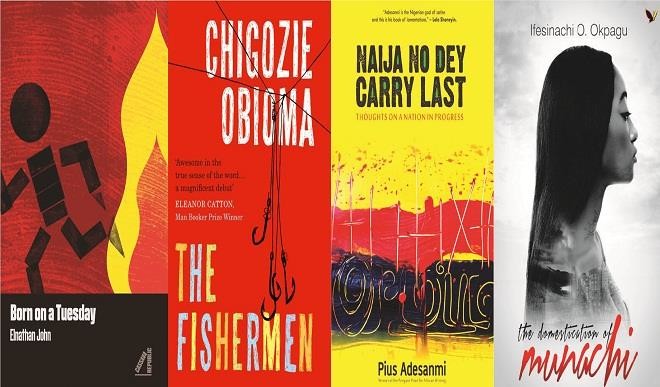2015 must-reads by Nigerian writers
‘Born on a Tuesday’ Dantala is an almajiri, a boy sent far away from home to study the Qur’an. But things take a turn as he becomes a member of a gang and then a Sufi sect. The novel is laden with the naïve voice of Dantala, who tells the story in a manner that […]


‘Born on a Tuesday’
Dantala is an almajiri, a boy sent far away from home to study the Qur’an. But things take a turn as he becomes a member of a gang and then a Sufi sect.
The novel is laden with the naïve voice of Dantala, who tells the story in a manner that takes the reader into the heart of the story. Here is how he speaks:
“Last month Malam Abdul-Nur stopped me at the entrance of the mosque and asked me if there was anything I wanted. First I was confused, thinking that perhaps he wanted to scold me for having done something wrong. But then his eyes were relaxed and the lines of his forehead weren’t so many and he wasn’t breathing hard like he does when he is upset. Reluctantly I told him I wanted a radio that has stations outside Nigeria – something like the big one in Sheikh’s office, but smaller, so that I can carry it around. At some point it crossed my mind that perhaps he wanted me to do something for him.”
Elnathan John’s novel is an offspring of his short story, ‘Bayan Layi,’ shortlisted in 2012 for the Caine Prize for African Writing. Again, in 2015, he was a finalist for his short story, ‘Flying.’
‘The Fishermen’
Chigozie Obioma’s debut novel tells the story of four brothers in 1990s Nigeria who take advantage of their father’s absence to skip school and go fishing at a forbidden river. There they encounter a mad man who prophesies that there would be violence amongst them, the kind that would alter the course of their family. ‘The Fishermen’ has won wards already and was shortlisted for the Man Booker Prize this year. The book has been described as mythic and the writer, as heir to Chinua Achebe. The work was also long-listed for the 2015 Etisalat Prize for Literature.
‘The Domestication of Munachi’
What could possibly domesticate a woman? It may be the obvious -relegated to keeping the home or just cooking or taming a wild one. The last fits better for this novel by Ifesinachi O. Okpagu.
Two sisters work in on their father’s sexual liaison with the family’s hired help which leaves them scarred in different ways. One of them, Munachi runs away from home years after, to evade being married off to a stranger. It’s a story of family conflict, how it can lead to destruction and the unnecessary pressure on women to take on life partners.
‘Season of Crimson Blossoms’
It’s not every day that one reads a novel like ‘Season of Crimson Blossoms,’ where a fiftyish widow, Hajiya Binta, gets romantically involved with a street thug nicknamed Reza. Reza is the head of a gang of young men that survive on stealing and rendering service to ambitious politicians. Their involvement with each other would shape their lives. Then there is the historical angle to the narrative steeped in the perennial Jos crises.
The author, Abubakar Adam Ibrahim, has made a mark with his first work, a collection of short stories, titled ‘Whispering Trees,’ was shortlisted for the Caine Prize for African Writing for the title story in 2012.
‘Black Ass’
Set in Lagos, this novel has a controversial title, one that is almost impossible to ignore. Furo Waribuko wakes up one morning to discover he has turned into a white man. Hilarious! But after flying through several pages, understanding hits the reader. The white man is tied to his past by a disturbing feature – his black buttocks. And this happens the day he is scheduled for a job interview. He lives home discreetly and ceases to be unemployed that same day. His white skin did it. All through the story, Furo desperately tries to detach himself from his past after discovering the gains his skin colour came with.
This exceptional story gives A. Igoni Barret an opportunity to show readers what it is like to be a white man in Lagos. People think a white man in Nigeria is always bound to be rich, so let me show them what may be the case sometimes, the author seems to say.
‘Naija No Dey Carry Last’
A collection of essays, this book gathers some of Professor Pius Adesanmi’s most important reflections on Nigeria, which had been published in media platforms, such as Premium Times and Sahara Reporters. The author uses satire to talk about various issues in the country over the last decades. Divided in parts, the work presents Nigeria’s woes, ranging from the mediocrity of leaders to the rot in its operational system. Most of these are written in fascinating satirical style that may get the reader laughing, but with loaded messages designed to not only inform but lead to discourse and reflections on the Nigerian society in virtually all spheres. Adesanmi is a columnist and political commentator.
